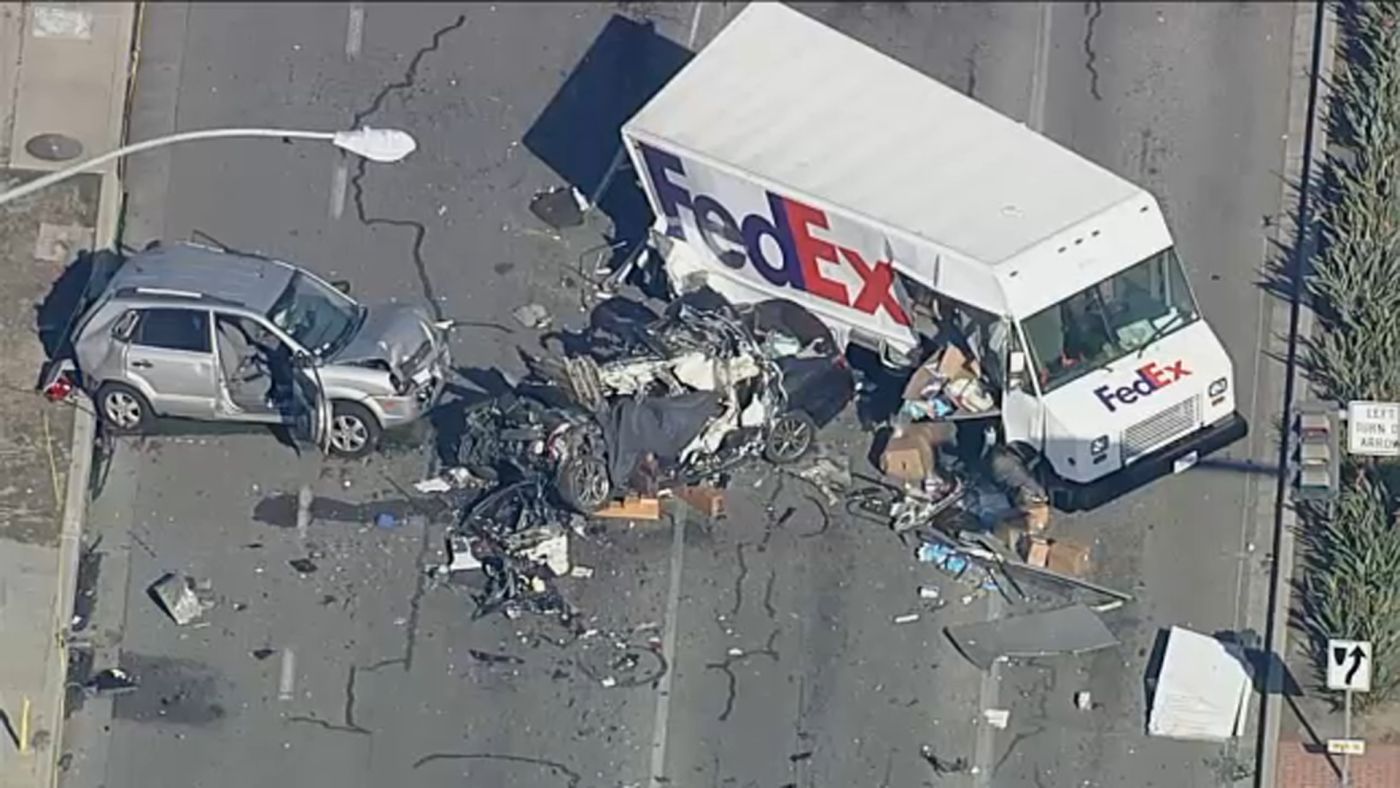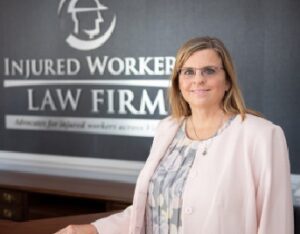
If you have been hurt in a car accident while you are at work, then you are presented a very unique legal situation. If you were in the performance of your work duties, and you are injured in a motor vehicle accident in the performance of those duties, you may have both a worker’s compensation claim and a third-party liability claim. Virginia recognizes two separate and distinct causes of action after an incident. But there are very important differences, and different considerations for each claim, because they are not the same! Personal injury attorney Joseph Blaszkow and Worker’s Compensation Attorney Michele Lewane have teamed up to answer these questions comprehensively for you!
Introduction
What should you do if you’re involved in a car accident while on the job? The answer depends on various factors, and we’ll address these questions in detail. Were you driving a company vehicle, or was it your personal car? Were you on a work-related task, or were you running a personal errand? Were you on or off the clock? In the world of workers’ compensation, these distinctions are crucial. We’re here to provide comprehensive answers.
Understanding Workers’ Compensation After a Car Accident
Under Virginia law, if you’re injured on the job, you may be entitled to workers’ compensation benefits. This covers your related medical treatment and lost wages, provided you can prove your claim. However, if you’re involved in a motor vehicle accident while merely commuting to or from work, you’re typically not covered.
There’s an exception if you were in a company vehicle, on a paid travel assignment, or running an errand for your employer. Pursuing a workers’ compensation claim can secure you the necessary medical care and wage benefits promptly.
Exploring Third-Party Liability Claims After a Car Accident
A third-party liability claim is distinct from workers’ compensation. It involves holding the party responsible for the accident accountable for his or her negligence. A third-party liability claim means that if someone else’s actions caused your accident while you were at work, you can hold that person responsible for your injuries. It’s like saying, “It’s not my employer’s fault, but that other person did something wrong, and they should pay for the harm they caused.”
A Third-Party Liability claim is a separate claim from your workers’ compensation, and you can pursue both if needed. Workers’ compensation involves your employer covering medical expenses, and it might also include short or long-term disability considerations. In a third-party liability claim, the focus shifts to the person whose negligence led to the accident. It’s important to note that you can pursue both types of claims independently, but it’s wise to seek legal advice to avoid interference between the two.
The Significance of Fault in Virginia
Virginia’s legal doctrine of “contributory negligence” can significantly impact personal injury claims. If you’re found partly responsible for an accident, you cannot recover in a personal injury claim.
The key distinction is that in workers’ compensation claims, negligence is not a factor at all. Whether you or someone else was at fault for your injury, you still have a valid workers’ compensation claim. In a third-party liability claim, negligence plays a crucial role, and you cannot have contributed to the accident in any way.
Determining the Cause of the Workplace Accident
The person responsible for the accident is a pivotal factor. Let’s consider two examples:
Example 1: Bob, a DASH bus driver, is involved in a collision with another
DASH bus while in his work vehicle. Bob’s injury qualifies for workers’
compensation only since the accident involved a fellow employee of the
same company.
Example 2: Daquan, a FedEx driver, is rear-ended by another motorist
while driving his work truck for work purposes. Daquan has both a
workers’ compensation claim, and a third-party liability claim since
the at-fault driver is not associated with FedEx.
In Virginia, workers’ compensation is the exclusive remedy when the employer is the only party involved, and there is no third party responsible.
Damages in Virginia Car Accidents at Work
Workers’ Compensation Damages
In a workers’ compensation claim, you can receive lifetime medical benefits and compensation for lost wages related to your injuries. These benefits can potentially lead to a lump-sum settlement of your workers’ compensation claim as well.
Third-Party Liability Damages
Your claim for personal injury in a third party liability claim includes many elements. These elements fall into two separate categories, called economic damages and non-economic damages. Economic damages are very clearly identifiable. They are documented in a clear and concise way. Here are some examples of economic damages:
- Medical expenses
- Future medical expenses
- Time lost from work
- Future time lost from work
- Property damage
Non-economic damages are less clearly defined. There is no bright line test or law that says a cervical sprain is worth X, and a broken arm is worth Y. Non-economic damages generally have to be proven through testimony, which can come from an individual or the injured person’s family. Examples of non-economic Damages include:
- Pain and suffering
- Emotional distress
- Post-traumatic anxiety
- Inconvenience
- Loss of an enjoyment of life
- Impairment in activities of daily living
- Scarring
- Disfigurement
- Permanent injury
Your Vehicle and the Scope of Employment
Whether you were using your own car at the time of the accident depends on whether you were within the scope of your employment. Commuting to and from work, even in a company vehicle, typically doesn’t qualify for workers’ compensation. To determine your eligibility for both types of claims, consider whether you were acting at your employer’s direction and if your actions were for the benefit of your employer.
Independent Contractors and Virginia Car Accidents
Independent contractors are not eligible for workers’ compensation since they are not considered employees. This can be complex, so consulting an workers’ compensation attorney after an accident is crucial. Remember just because your employer may conveniently label you as an independent contractor, does not mean by law that you are an independent contractor. Consult an attorney to know your rights.
For rideshare and delivery drivers, like Uber and Lyft drivers, workers’ compensation coverage is generally unavailable since they are not classified as employees in Virginia.
Investigating a Car Accident at Work
It’s vital to consult a worker’s compensation and a personal injury attorney immediately after an accident. Claims need swift investigation to determine available coverage and gather evidence. Negligence is typically not a concern in workers’ compensation cases but is a significant part of personal injury claims. Early preservation of evidence, such as camera footage and witness statements, is essential.
Camera footage will not last forever. Often, great systems will record footage for 30 days, while smaller systems will only maintain it for as little as 72 hours. It is important that we preserve it so it is not overwritten.
Also, Witnesses have to be located and interviewed. Witnesses do not have the best memory, and the more time that passes, the more likely it is that the witnesses memory is going to fade. Think about it. Do you remember what you were doing seven Fridays ago at 4:27 in the afternoon? Chances are the answer is no. An experienced car accident lawyer is going to have a team of paralegals and investigators who are going to find these witnesses, interview them, and often preserve their statements through recordings or affidavits.
Settling the Case – Consideration and Liabilities
When you’re involved in a car accident or truck accident and have a workers’ compensation case, it’s crucial to remember that workers’ compensation has a lien on your personal injury case. This means the workers’ compensation insurance carrier is entitled to a proportionate share of their payments.
Settling a third-party car accident case without considering the workers’ compensation lien can have legal consequences. The language of settlement releases must be carefully reviewed to avoid harming either of your cases. You should never attempt to settle a case without speaking to an experienced lawyer, because the settlement could potentially prejudice someone else.
Contact Experienced Attorneys Immediately – Meet the Experts
If you have been injured, it is important that you get representation right away. In worker’s compensation claims, the workers comp adjusters are often doing everything they can to reduce your damages as much as possible. They do not want to pay! The same thing is true of car insurance companies: they don’t stay in business by giving you everything you are entitled to. You need to make sure that you are fighting these people with a team that is backing you up all the way.
 Michele Lewane is a Virginia workers compensation attorney and founder of Injured Workers Law Firm. With over 35 years of experience, Michele has a passion for defending the rights of injured workers. Michele has written three books to educate people in Virginia on the workers’ compensation system; her most popular, “The Ultimate Guide to Workers’ Compensation in Virginia,” as well as “The Ultimate Guide to Workers’ Compensation for Nurses in Virginia” and “The Ultimate Guide to Brain Injuries,” can be ordered on her website for FREE.
Michele Lewane is a Virginia workers compensation attorney and founder of Injured Workers Law Firm. With over 35 years of experience, Michele has a passion for defending the rights of injured workers. Michele has written three books to educate people in Virginia on the workers’ compensation system; her most popular, “The Ultimate Guide to Workers’ Compensation in Virginia,” as well as “The Ultimate Guide to Workers’ Compensation for Nurses in Virginia” and “The Ultimate Guide to Brain Injuries,” can be ordered on her website for FREE.
 Joe Blaszkow is a car accident and personal injury attorney. He has been fighting for the rights of injured Virginias for over 40 years, and is also a member of the Bar in Maryland and Washington, DC. He is a graduate of Georgetown Law, and was one of the first attorneys to successfully obtain punitive damages against a drunk driver who injured his client.
Joe Blaszkow is a car accident and personal injury attorney. He has been fighting for the rights of injured Virginias for over 40 years, and is also a member of the Bar in Maryland and Washington, DC. He is a graduate of Georgetown Law, and was one of the first attorneys to successfully obtain punitive damages against a drunk driver who injured his client.





